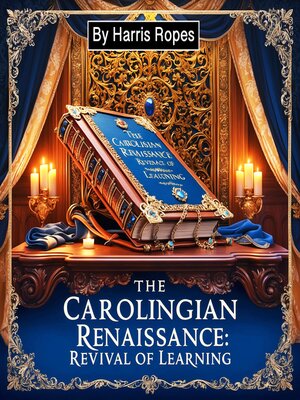
Sign up to save your library
With an OverDrive account, you can save your favorite libraries for at-a-glance information about availability. Find out more about OverDrive accounts.
Find this title in Libby, the library reading app by OverDrive.



Search for a digital library with this title
Title found at these libraries:
| Library Name | Distance |
|---|---|
| Loading... |
The Carolingian Renaissance was a pivotal moment in European history, marking a revival of learning, culture, and intellectual activity during the reign of Charlemagne and his successors. To fully appreciate this movement, it is essential to understand the historical context from which it emerged. In the centuries following the fall of the Western Roman Empire, Europe experienced a period of cultural and intellectual decline often referred to as the Dark Ages. Classical texts were lost or neglected, education was limited, and much of the knowledge from antiquity was confined to isolated monastic communities.
Charlemagne, who became King of the Franks in 768 and later Emperor of the Carolingian Empire in 800, envisioned a unified Christian realm grounded in both faith and knowledge. He recognized that in order to strengthen his empire, he needed educated clergy, literate administrators, and a shared cultural foundation rooted in Roman and Christian traditions. Inspired by this vision, Charlemagne initiated a series of reforms aimed at restoring learning and promoting intellectual growth throughout his territories. This commitment to education and scholarship laid the groundwork for the Carolingian Renaissance.
One of the most significant influences on this movement was the Church. As the central institution of medieval Europe, the Church played a crucial role in preserving what remained of classical knowledge. Monasteries, in particular, became the hubs of literacy, where monks copied ancient manuscripts and engaged in theological study. Charlemagne capitalized on this religious infrastructure by encouraging the establishment and reform of monastic schools. These institutions became centers of education not just for future monks, but also for clergy and even lay officials serving in the empire.







